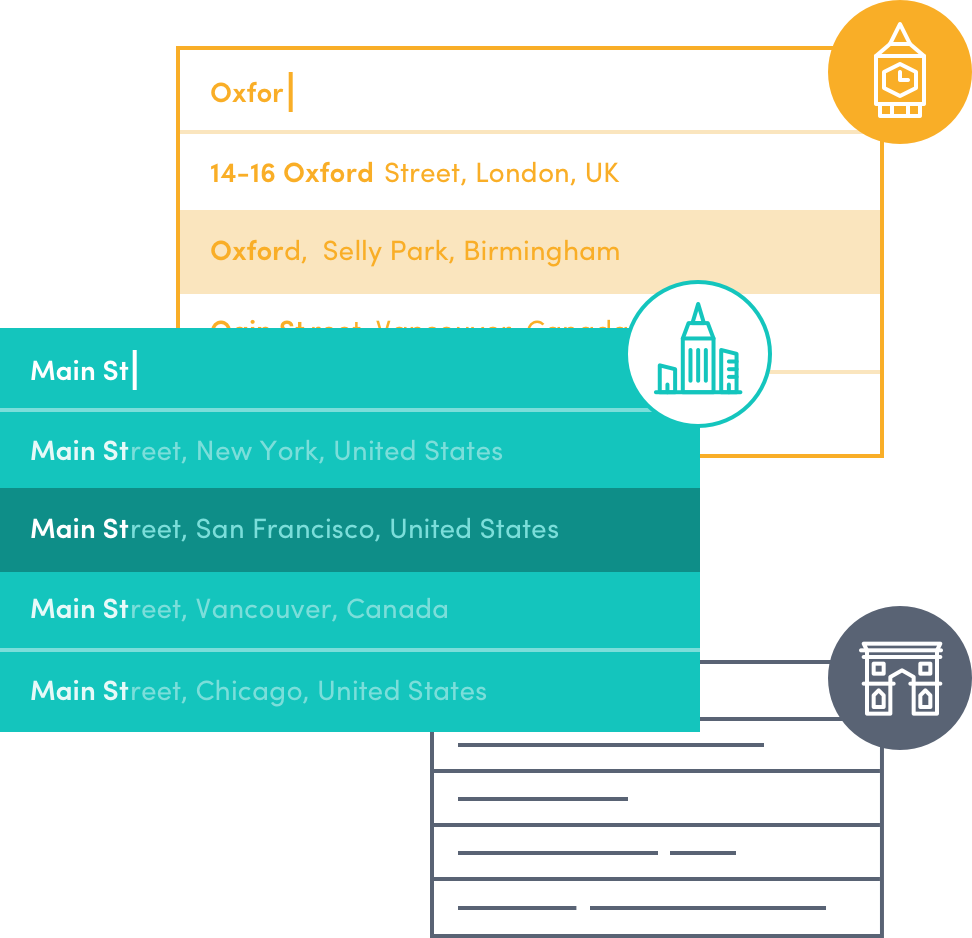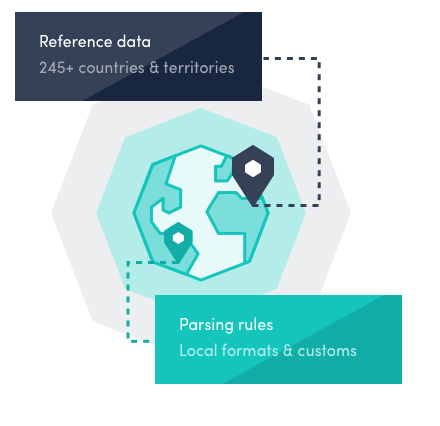International Address Validation

At A Glance
Address Validation software makes it quicker for the end consumer to enter an accurate address into a digital or mobile form. It gives businesses the confidence that they are working with clean and accurate data.
International Address Validation Overview
When companies participate in international commerce, it’s important to make sure that your customer data is accurate. Mistakes can be costly, especially if an incorrect shipping address results in returned packages.
International address verification is a technique for cross-referencing postal addresses with an official dataset. It’s likely that you’ve already come across this technology in your own personal experience, if you have shopped with a company that is using international address validation service in their onboarding or checkout process.
-
How International Address Verification Works
From a technical perspective, the process of validating addresses takes place using an international address verification API call from one database to another. Here are some example tasks that an API can support:
-
Lookup addresses based on text
-
Append latitude and longitude data
-
Format addresses based on a country’s postal standard
-
Make sure that zip codes match up with street addresses
-
Translate information between languages
-
Communicate with a credit card provider to assess fraud risk
-
Pre-populate address information at checkout
-

Challenges With Validating An Address
The quality, availability, and accuracy of datasets around the world vary greatly. There are more than 130 different international address formats in the world. Every country has a different standard and system for delivering mail. As a result, operations may become complex for a company that serves customers around the world.
International address verification creates a common basis for technical communications, which is especially important in a multilingual world.
Address verification technology standardizes international addresses to meet local formatting rules. For an optimal user experience, end users need to see form fields presented in the order that is most familiar to them. In Japan, people start their address by entering their postal code. If the company is in France, they will ask for the building number before the street name, while German forms will ask for the street name first, along with your academic title, as it is an essential part of the address there.
In addition, the reliability of mail delivery varies around the world. In developing nations, especially, there may not be official addresses for a high proportion of the population — particularly individuals who live in unofficial settlements. In these situations, a postal carrier is generally familiar enough with a neighborhood to deliver mail.
In some countries, there is no regional segmentation such as “states” in the United States and “provinces” in Canada. Rural and population-sparse areas consist of unnamed roads and unmarked buildings, which results in inaccurate data collection, poor identification, and low accessibility. Only 12 percent of countries have delivery point verification (DVP) data, which corresponds to a house or apartment.
Some countries do not have a reliable postal service at all, especially during times of war and conflict.

Choosing Technology for Global Address Validation
There are a number of address verification tools available for companies to consider for their use cases. What’s important to remember is that every service is different. Choosing an address validation API depends on overall business model considerations.
Here are some example considerations to keep in mind when choosing an international address validation API:
-
High quality international data
-
Where and how data is obtained
-
What types of data is available with the API
-
What transactional volume the API service can support
-
What types of integrations are possible with other software in a technology stack
-
What security and compliance features are available
-
Whether there are service interruptions and how often
-
What types of businesses rely on the service
-
What levels of customer support are available
The address validation API should be straightforward to implement, easy to use and able to support the fast pace of global commerce.
Address Validation by Country
Address validation requirements vary by country due to different address formats and standards. Adhering to each country's requirements is essential for successful international deliveries. International address validation tools can help businesses avoid costly errors, such as undeliverable packages, returned shipments, and delays in delivery.
Role of Postal Authority and USPS
The role of a postal authority is crucial in ensuring the accuracy and reliability of address data. For instance, the USPS (United States Postal Service) provides an authoritative address database that can be used to verify addresses within the United States. This helps in maintaining high standards of address accuracy and delivery efficiency.
Loqate helps businesses around the world verify customer addresses by combining our global datasets with best in class technology. Our easy to integrate API helps our customers verify customer data at the point of capture. Find out more about how Loqate address verification solutions can help your business.